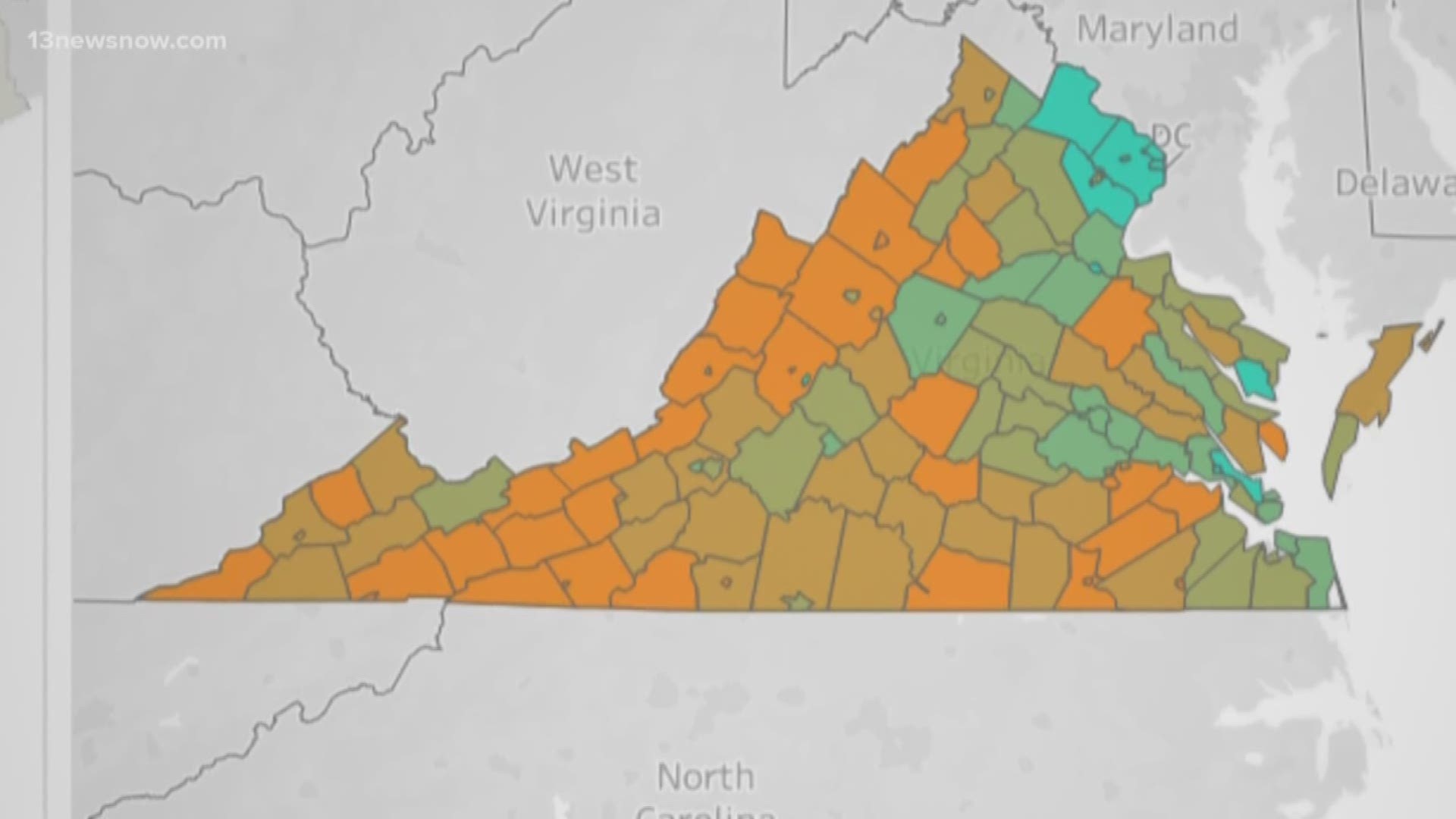VIRGINIA BEACH, Va. — A data company is using smartphone GPS data to create a 'Social Distancing Scoreboard' designed to reveal how many people are following stay-at-home orders and limiting their movement in response to coronavirus concerns.
Unacast uses location data it receives from applications that millions of Americans have downloaded on their phones. The company says it's tracking the "change in average distance traveled" each day, comparing it to pre-social distancing levels to determine the percentage of movement reduction.
The "scoreboard" updates every day. As of March 30, Virginia received a "B" grade for 32% reduction of movement. North Carolina received a "C" for a 27% reduction.
The data also looks at localities. In Hampton Roads, Virginia Beach, Norfolk and Hampton received "B" grades while Chesapeake, Newport News, Portsmouth, and Suffolk received "C" grades.
The data isn't a perfect index for measure social distancing, as people can travel long-distance without interacting with anyone and it doesn't show how many people are staying the social distancing guideline of six feet away from others.
However, it's meant to broadly show the effects of working from home, canceling trips, and cutting off non-essential visits.
Governor Northam issued Executive Order 55 on Monday, an official stay-at-home order for the Commonwealth.
“This weekend some of our beaches were packed," Northam said.
Exercise -- as long as it follows social distancing rules -- is an exception to the order. So, Virginia Beach parks are still open, even if playgrounds, skate parks, dog parks, and basketball courts are closed.
“It’s a call to action to people to take care of themselves, get out when they need to but do it in a way where they’re social distancing," said Julie Braley with Virginia Beach Parks and Recreation. "We just need people to do the right thing, be responsible and follow these guidelines."
As for the phone tracking data, Unacast CEO Thomas Walle writes he hopes it helps determine if stay-at-home orders are effective and how many people are complying.
For privacy concerns, Walle told the Washington Post that people agree to share this type of information via location sharing within apps, but the data is aggregated and can’t be applied to any individual.

